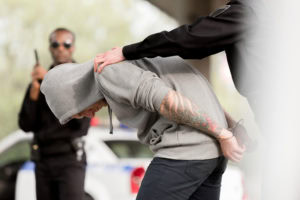Top Rated Criminal Lawyers | Call Us 24/7 AT (416) 658-1818

467.1 (1) criminal organization means a group, however organized, that
(a) is composed of three or more persons in or outside Canada; and
(b) has as one of its main purposes or main activities the facilitation or commission of one or more serious offences that, if committed, would likely result in the direct or indirect receipt of a material benefit, including a financial benefit, by the group or by any of the persons who constitute the group.
It does not include a group of persons that forms randomly for the immediate commission of a single offence. (organisation criminelle)
serious offence means an indictable offence under this or any other Act of Parliament for which the maximum punishment is imprisonment for five years or more, or another offence that is prescribed by regulation. (infraction grave)
(2) For the purposes of this section, section 467.11 and 467.111, facilitation of an offence does not require knowledge of a particular offence the commission of which is facilitated, or that an offence actually be committed.
(3) In this section and in sections 467.11 to 467.13, committing an offence means being a party to it or counselling any person to be a party to it.
(4) The Governor in Council may make regulations prescribing offences that are included in the definition “serious offence” in subsection (1).
If you have been charged with a crime in relation to being a member of a criminal organization, or any other criminal offence contact Kostman and Pyzer, Barristers today for advice!
While being a member of a criminal gang is not a crime in itself, it becomes a critical factor in the prosecution of various offences. The Criminal Code of Canada defines a criminal organization as a group that engages in serious criminal activities for material benefit.
If you're facing charges related to gang involvement or other criminal offences, our Toronto Defence Lawyers can provide expert guidance and help protect your rights.